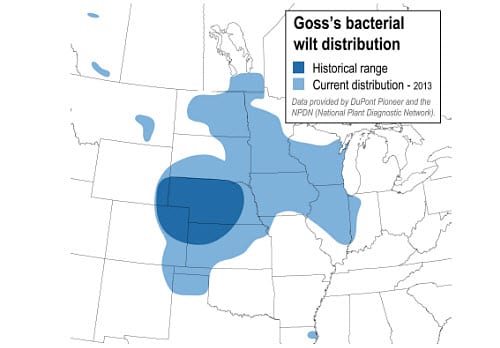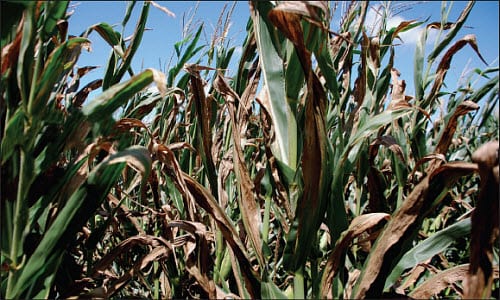 Goss’s wilt has rapidly become a significant and yield-reducing disease.
Goss’s wilt has rapidly become a significant and yield-reducing disease.
It often occurs when plants become infected from weather damage such as hail or strong winds which allow infection to attack the corn plant’s vascular system. Corn leaves become scarred with brownish-yellow lesions and sprinkled with black freckles.
Look for dark spots that resemble freckles in the outside edge of a developing lesion. Don’t confuse freckles with black colonies of saprophytic fungi that colonize dead leaf tissue. To be sure, hold a leaf up to the light. Freckles appear transparent, but fungi are dark.


There are no rescue treatments; however, other than selecting resistant hybrids, reducing corn residue may help lessen infection for next year’s crop.